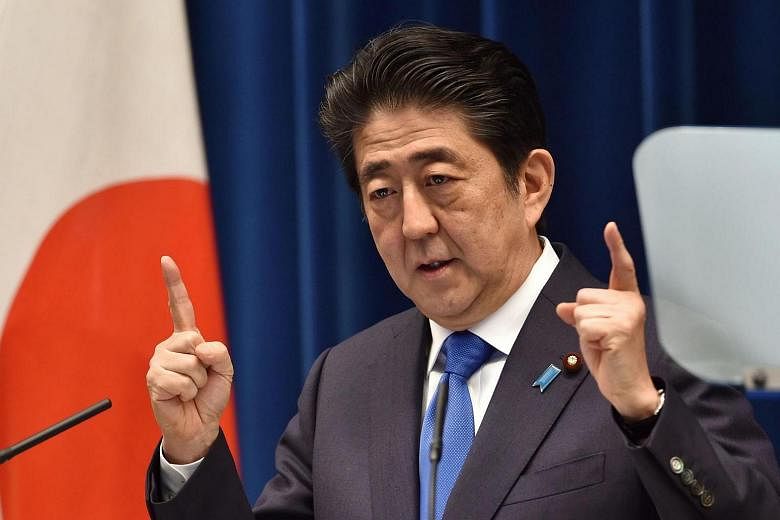TOKYO (Reuters) - Most Japanese firms support the government's decision to put off a hike in the national sales tax by more than two years due to weakness in the economy, a Reuters poll showed, though corporate concern about the negative impact of the delay was also high.
A sales tax hike to 10 per cent from 8 per cent is seen as crucial to curbing Japan's public debt - the heaviest among industrial nations - and for funding ballooning social welfare costs, but worries about the impact of China's slowing growth have mounted.
Prime Minister Shinzo Abe's decision this month to postpone the hike by two and a half years to October 2019 found favour with 61 per cent of firms, while the rest were against, the Reuters Corporate survey showed.
"The economy would deteriorate if the tax hike was not postponed, therefore fiscal consolidation would become out of the question," wrote a manager at a firm in the auto sector.
The survey, conducted between June 6 and June 16, showed that 26 per cent of companies thought the delay would help consumer spending and lift sales, while 30 per cent thought it would help speed up Japan's efforts to escape from deflation.
But underscoring the Catch-22 situation that Japan has found itself in, just as many cited concerns about the delay.
Thirty-two per cent of firms said consumer spending could stagnate on uncertainty about social security while 26 per cent said an escape from deflation could be hindered as firms would find it harder to raise prices. Another 8 per cent said they were concerned about funding costs rising if Japan were to suffer a potential credit rating downgrade.
The question about the impact of the postponed tax hike allowed multiple answers, asking companies to choose up to two concerns. Around 240 firms in the poll of 509 big and medium-sized companies answered questions on the tax.
Managers respond on condition of anonymity to the survey which is conducted monthly for Reuters by Nikkei Research.
"Japanese firms must be relieved at least for the present that the tax hike was delayed. But that doesn't mean they expect it to boost the economy and consumption," said Mr Taro Saito, director for economic research at NLI Research Institute.
"They recognise that fiscal consolidation is an issue that can't be sidestepped if Japan wants to eliminate the root of future anxiety."
The survey also showed that the vast majority of firms were unimpressed with the momentum for "Abenomics" - economic policies that have spanned monetary and fiscal stimulus but are now focused on structural reform - an area in which the government has made little headway.
Fifty-nine per cent said Abenomics was losing momentum while another 11 per cent saw momentum had been lost altogether.
That compares with 66 per cent and 6 per cent respectively in October last year when the same question was asked.
Less than one-third said momentum was being maintained.
The survey also showed many companies were worried about a spike in the yen in the event that Britain leaves the European Union as a result of a June 23 referendum, with 60 per cent saying they were concerned about potential swings in currency rates.
The safe-haven yen has recently gained strength, prompting policymakers to warn investors against pushing the yen higher.
"If Britain leaves the EU, it would cause the yen to rise. We worry that a deterioration in exporters' profits would hurt the economy as a whole," wrote a manager of a construction firm.

